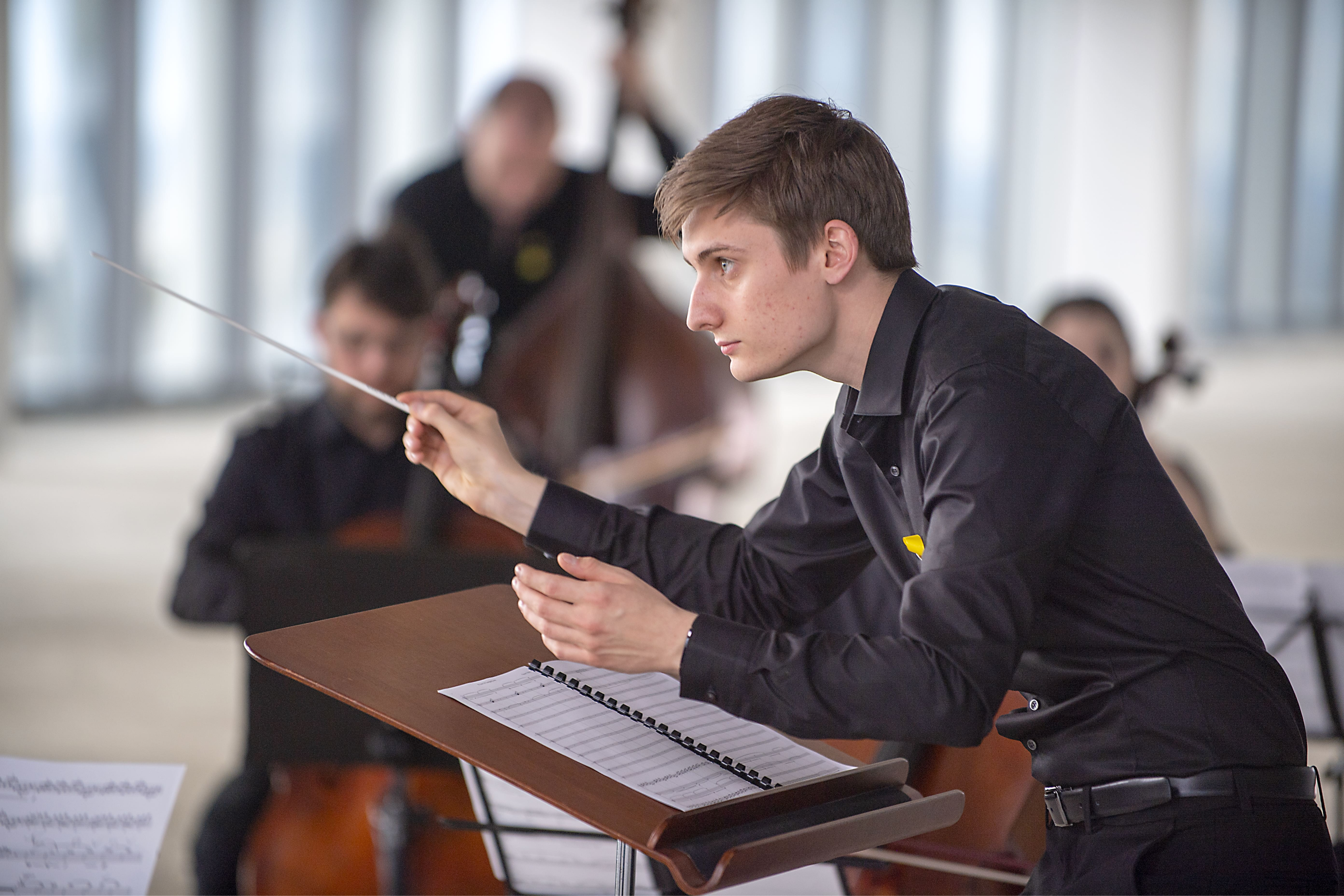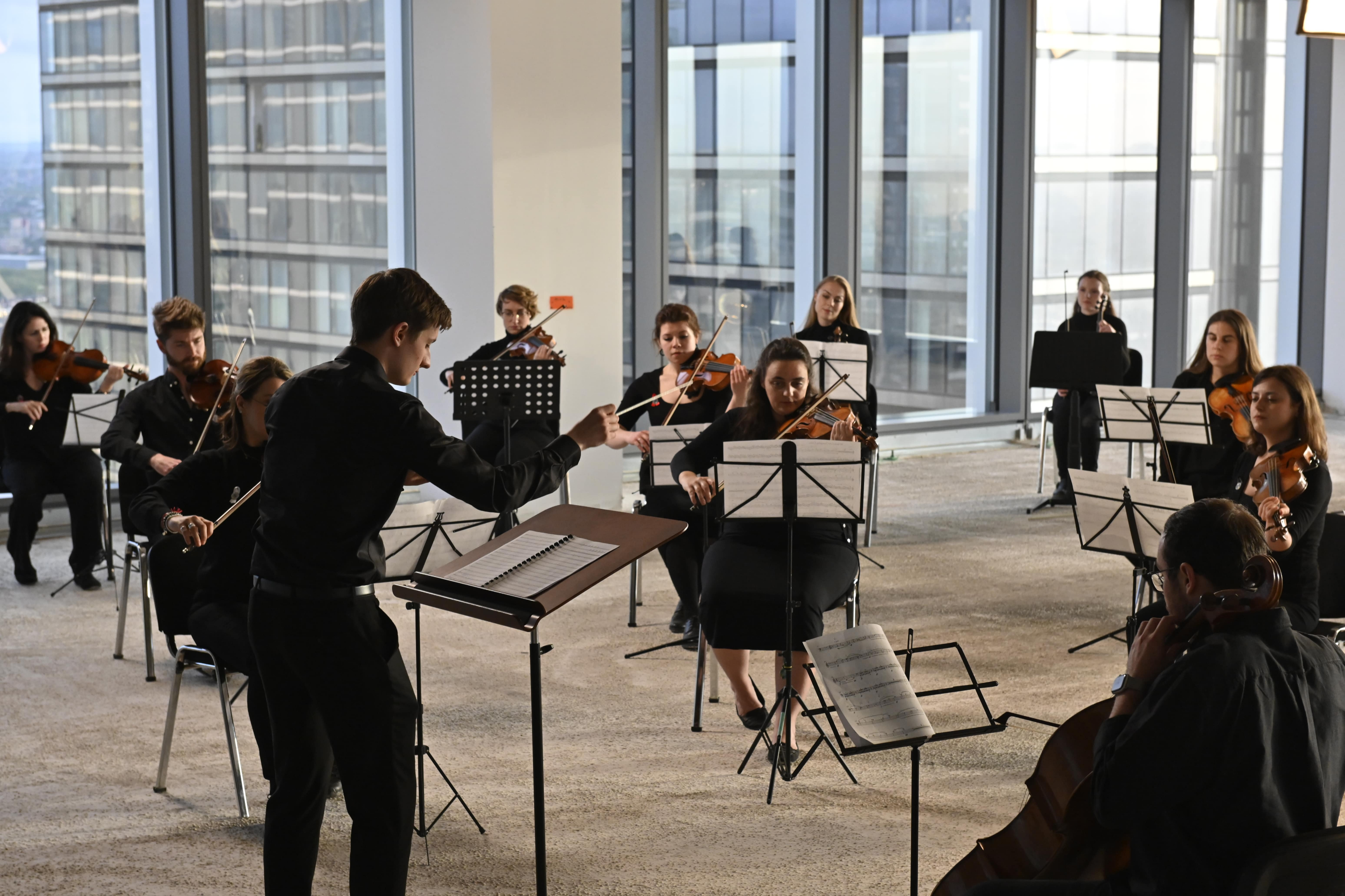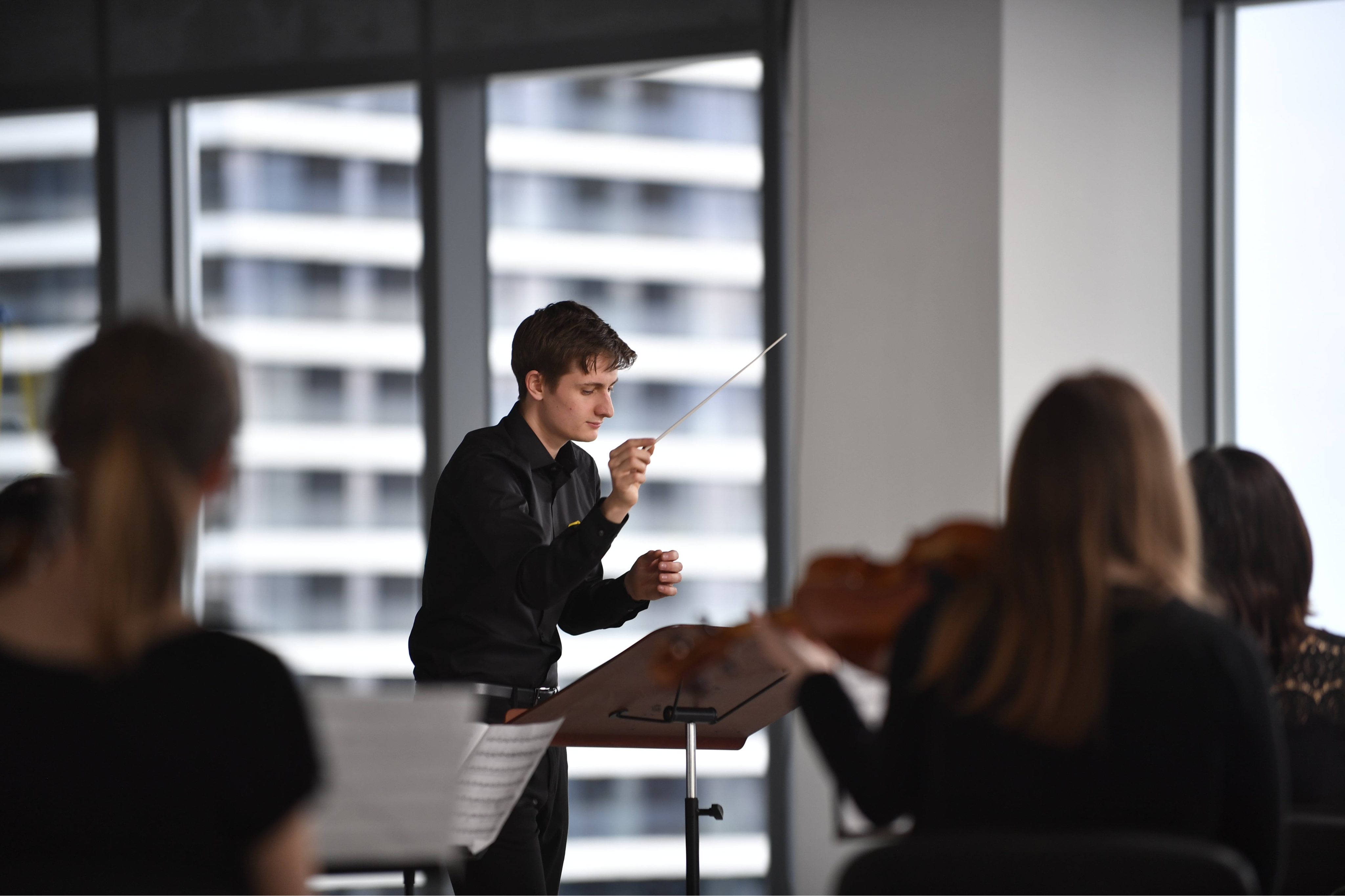Chester Tribley is an up-and-coming composer who was recently commissioned by Essex County Council and the Essex Climate Action Commission (ECAC) to create a special anthem representing climate action in Essex. His musical score, entitled Restoration, was performed to a live crowd for the very first time at the Essex Youth Orchestra and Essex Young People’s Orchestra Summer Concert on Friday 12 August.
20-year-old Chester, who grew up in Chelmsford, currently lives in London, where he is studying towards a degree in Film Music Composition at the Guildhall School of Music and Drama. We recently caught up with Chester to learn more about his journey towards becoming a composer and his lifelong passion for protecting the planet.

Hi Chester. What led you towards a career in composing?
“I became interested in music during primary school, where I learned to play the ukulele alongside my friends at my school’s lunch time music club. I began piano lessons when I started high school, reaching Grade 8 by the time I completed my A levels.
“I continued to study music alongside economics and physics at sixth form. I was planning to pursue a science-related career, but my music teacher inspired me to follow my true passion – music.
“When it came to deciding what area of music to study at degree level, I credit the legendary composer Murray Gold for propelling me towards film composition. Gold was Musical Director for one of my favourite TV shows of all time – Doctor Who – from 2005 to 2018. I was fascinated by Gold’s ability to create an atmosphere through his musical scores for the show, from haunting choirs to luscious orchestral melodies.
After applying for a number of music courses at universities across the country, I couldn’t believe my luck when I received an offer for the Film Music Composition course at the Guildhall School of Music and Drama, a course which only accepts a handful of students per year!”

Can you tell me a bit about your current course?
“I’ve just completed the second year of my course and I’m really enjoying it. I’ve had the opportunity to gain industry experience working on projects with students from universities across the globe, such as the Maryland Institute College of Art (MICA) and the MetFilm School.
“In 2021 I was lucky enough to work with the Illuminated River project, composing a musical score which tells the story of the iconic Blackfriars Bridge in London. During the year I also worked with the European Bank for Reconstruction and Development (EBRD), creating a composition to mark the organisation’s 30-year anniversary. I conducted a performance of the piece at a special concert on the 24th floor or One & Five Bank Street in Canary Wharf.”
Why is climate action an important issue for you?
“I’ve always been a passionate advocate for the environment. I remember learning about the General Election of 2010 in primary school and being fascinated by the Green Party, and I became a vegetarian at a young age.
“During a sixth form trip to Lesotho, in south Africa, I saw how climate change had already impacted rural communities – it was supposed to be storm season at the time but the rivers and land were dried up. I felt this was the catalyst for my ongoing support for climate action initiatives.
I feel very proud to be working with Essex County Council and the Essex Climate Acton Commission (ECAC) to create a musical score that not only represents the positive climate action already happening across Essex, but also inspires people to protect the natural world around us.”
Could you please talk us through your ideas behind Restoration?
“Restoration takes the listener through a journey in three distinct sections – Dystopia, Extinction Rebellion and Progress.
“The first section encompasses Dystopia and the image of a chaotic, polluted future. This section builds in volume and pitch to represent increasing temperatures, sea levels and extreme weather. It is intentionally uncomfortable for listeners, a sound that you just want to end.
“Next comes Extinction Rebellion, which aims to give an overwhelming sense of community, positivity and urgency. Some of the chants I’ve heard at environmental protests inspired the melody for this section. These chants are rhythmic and simple, and always end with a crescendo of voices singing in unison.
“The final section is soft and positive, giving listeners a sense of progress and reflection. It incorporates different sounds inspired by wildlife to remind us of what is most important – the natural world around us.”

What long term impact would you like Restoration to have on climate action in Essex?
“I would like listeners to feel a sense of hope after listening to Restoration. The purpose of the piece is to guide people on an emotional journey through hopelessness, chaos, defiance and unity, to hope and positivity.
“If the piece has just one impact, I hope that it inspires people to feel like they can make a difference by embracing climate action themselves.”
The Essex Climate Action Commission’s purpose is to provide expert advice and up-to-date recommendations to help Essex County Council move Essex to net zero by 2050. The recommendations made by the Commission also consider the roles of multiple forms of communication and engagement across Essex, all of which contribute to moving Essex to a net zero county.
Connecting to the natural world through the arts, particularly music, is a powerful way to bring communities together and raise environmental awareness. Essex County Council and the Essex Climate Action Commission hopes that, in listening to Restoration, people will feel inspired to consider the impact of climate change in Essex and pause, reflect and feel the beauty of the world around us.
Restoration was performed to a live crowd for the very first time at the Essex Youth Orchestra and Essex Young People’s Orchestra Summer Concert on Friday 12 August.
Learn more about the Essex Climate Action Commission’s recommendations for moving Essex to net zero here.







